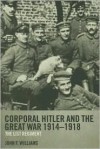Currently reading
AN AIRMAN'S MEMOIR OF TRIUMPH IN DEFEAT DURING THE BATTLE OF FRANCE

This book approaches perfection in a way that I've rarely known among books I have owned. Hardback, its cover artwork is reminiscent of one from the 1940s with silhouettes of 2 aircraft flying over well-ordered farmland with a barn and silo in the background flanked by a tree in spring bloom. Its texture is light to the touch, inviting the reader to look inside and read to his/her heart's content.
"Six Weeks of Blenheim Summer" is the byproduct of a granddaughter's labor of love and homage to her grandfather, Alastair Panton, who had, before his death in 2002, written a memoir of the time he served as a reconnaissance pilot in 53 Squadron of the Royal Air Force (RAF) during the Battle of France in 1940. Panton's granddaughter had found the memoir among her grandfather's personal effects after his death, read it, and resolved to bring it to a wider public "both to remember Alastair, and as a mark of gratitude to the many brave and courageous men who served with him."
The memoir begins on May 11, 1940, one day after the German invasion of France and the Benelux countries. Panton is flying a Bristol Blenheim IV twin-engined airplane on a photo-reconnaisance mission over the advancing German lines, on behalf of British Army intelligence. Suddenly, he and his crew, Sergeant Bence --- who operated the top, hydraulically-operated gun turret --- and Sergeant Christie, his navigator --- are attacked by 6 German fighters (ME 109s). Panton dodged and turned his aircraft to escape further damage. Christie is wounded in the head and Bence is gravely wounded in the thigh. Panton manages to crash land his aircraft, harried all the while by the Messerschmitts. He gets Christie, semi-conscious, out of the burning aircraft and, with a break in the flames around an unconscious Sergeant Bence, rushes back into the Blenheim and gets him safely out and away from the burning petrol and exploding ammunition.
Luckily for Panton and his crew, they had landed a short distance from a house with "a two-car garage in one side of which was a small Renault saloon. The first door of the house was half-open and, when my pull on the wrought-iron handle brought no response, I entered." He finds the house in a state of hurried abandonment, with freshly made food on the dinner table. He gathers what food and drink he can find and walks over to the Renault whose tank was full and the ignition key in the lock. Panton goes on to write: "With the bed-sheets piled on the seat beside me, the two flagons of wine and water on the floor, my flying boots clumsy on the pedals, and at the wheel of a left-hand-drive car for the first time, I was soon back in the field, bumping across the grass to where I had left Christie and Bence under the hedge."
Panton and his unconscious crew begin their uncertain trek across Belgium to Brussels, set on finding the hospital there where his crew can promptly receive the best medical treatment. Upon arrival, Panton falls seriously ill with fever and lapses into unconsciousness for 9 days.
Before the end of the month, Panton manages to get back to his squadron --- which is in the process of quitting France --- flies back to Britain, where he is given 5 days' leave, and takes part in assisting in the evacuation of Franco-British forces from Dunkirk, flying reconnaissance and bombing missions against the advancing Germans. On one of these missions, which entailed attacking targets "west and south-west of Nieuwpoort [Belgium]", Panton and his new crew (Farrow, the navigator, a Scotsman - and Stride, the gunner, a Canadian) had just dropped their bombs and was flying low over the crowded beaches of Dunkirk, waggling his wings, when his Blenheim was struck by friendly fire and hurriedly crash landed on the beach, where, nearby a Catholic padre had been celebrating Mass. Panton, Farrow, and Stride are soon evacuated back to Britain with the remaining soldiers of the British Expeditionary Force (BEF).
Panton is given little respite, though his squadron has been stood down, in light of the heavy losses it had sustained over the past month. He is brought back from leave and sent back to France on June 4, 1940 to assume command of a detached reconnaissance flight of Blenheims, whose flight commander and crew had been killed in action the previous day. The story that then follows is one of hopelessness and desperation as Panton's unit faithfully carries out its duties. Defeat becomes more certain with each passing day as the Germans spread out across France like an irresistible tide, enter Paris --- which had been declared an open city --- on June 14, 1940 --- and France sues for peace 4 days later. Yet, through it all, as a reader, I was deeply moved by the devotion of Panton's unit --- flight crews and support personnel alike --- in fulfilling the missions given to it by the RAF and what remained of the British Army in France. Panton is a skilled writer, and in his words, the reader sees it all. He brings the past back to life.
 2
2













